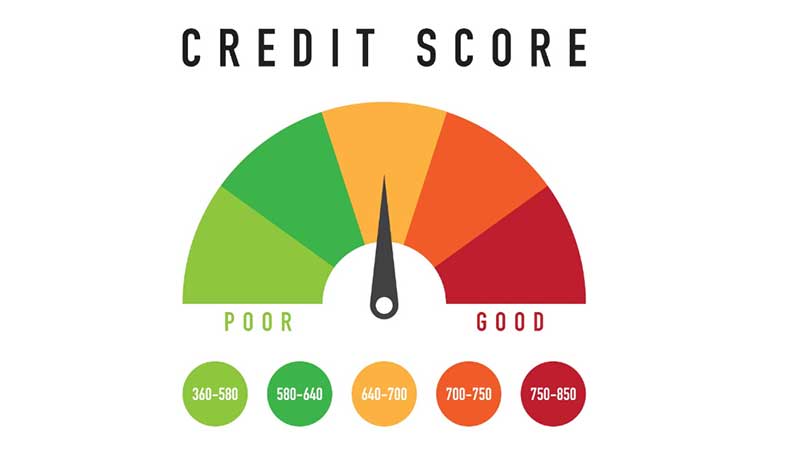What Things Can Make Your Credit Score Go Down
When facing financial needs, we often borrow funds. We are rational beings, and we only borrow when it is absolutely necessary. For instance, you may be plagued with an unexpected medical bill that forces you to borrow money. While it is always advised to save for emergencies, emergencies come when least expected. And sometimes the cost to be covered might be too high. Borrowing money can really save you a lot. But what if I tell you may not qualify for that loan? Not everyone who applies for a loan qualifies for it.

Today we want to examine one of the most essential tools that lenders like instant Cash use to determine the creditworthiness of borrowers–credit score. Specifically, we will be looking at the reasons why your credit score may go down. But let us begin by understanding what credit score is.
Credit Score
A credit score refers to a three-digit number often calculated based on the information from one’s credit history. It is a tool used by nearly all lenders to determine whether loan applicants are eligible or not. In other words, your credit score is used to decide whether or not you can be approved for a loan and the interest rates to be charged. When people talk of credit score, they often refer to the FICO score. This is a corporation that was established back in 1956 to determine the creditworthiness of individuals.In general, a credit score ranges from 300-850. The following values show how the scores are interpreted:
- Excellent–800+
- Very Good–750+
- Good–700+
- Fair–650+
- Poor–600+
- Bad–550-
In most cases, lenders prefer a credit score of at least 700 points. However, credit is built with time. Failure to use credit translates to bad credit. It is imperative to work on improving your score.With these basics, let us now look at factors that may make your credit score go down.
A late Payment
As mentioned in the preceding section, credit is built over time, and the best way to do that is to borrow and repay in time. Failure to pay a loan in time has a devastating impact on your score.Generally, payment history may account up to 35% of your credit score. Additionally, figures from FICO indicates that a 30-day late payment may lessen your score by 110 points. That means if you had a good credit score (700), you are going to have poor or bad credit. To make matters worse, a late payment may appear on your credit history for up to seven years. It is vital to make payments on time. In case something happens and renders you unable to make a payment in time, talk to the lender in advance. Your payment schedule may be adjusted, and by doing this, you will lessen more damage to your credit.
Failure to Pay
Failure to pay a loan is worse than making a late payment. Your credit score can drop significantly.If you don’t obey your obligation to pay the loan, the lender may forward your details to credit bureaus. It is also important to note that even failure to par your rent and other bills have the same effect as failure to pay a loan. Do not let this happen. No one is immune to the things that occur and affect the ability to obey financial obligations. But again, if you anticipate the chances of not affording to pay, talk to your creditor early enough, and you will be helped accordingly.
Hard Inquiries
Whenever one applies for a loan, his or her credit score is often pulled for review. A hard inquiry often drops a credit score by at least five points. This means several hard inquiries can significantly lower your credit score. A hard inquiry will affect your score for a period of between 6 and 12 months. Nevertheless, the information will be reflected on your credit history for 24 months. In this light, you should try to avoid applying for credit frequently because a hard inquiry will always be made whenever you apply. In general, applying for several credit cards in a few months lead to a significant drop in the credit score because of the hard inquiries made. Moreover, if you make a lot of applications within a short time, lenders are likely to see you as desperate for credit.According to FICO, if you have more than 6 inquiries, the possibility of being declared bankrupt is high.
Bankruptcy
This is the worst thing that can ever happen to an individual as far as credit score is concerned.Declaring bankruptcy always lowers a credit score by 130-240 points. This is too many points to lose. Besides, the bankruptcy information often appears on one’ credit report for at least 10 years.
Collections and Charge-offs
A collection occurs when all your outstanding loan amount is sold to a collection agency. This often happens when the creditor writes off the loan, usually six months after the due date. A collection made recently has the potential of lowering your score by 100 points. Also, collections can be reflected in your credit report for at least seven years.
It is good to remember that lenders are in business, and they need to profit. It will be absolutely ridiculous to approve any application received. Lenders will always want to give loans to the most trustworthy borrowers. They must be sure that the loan amount, along with the accumulated interest, will be repaid. For this reason, borrowers must pass various eligibility tests.
A credit score is an essential measure of your eligibility to loans. Good credit is built over time,and as we stated earlier, the best way of doing that is to borrow and repay loans in time. Good credit can approve you for a loan while bad credit may make you ineligible for credit. In this blog,we have discussed a number of factors that can make your credit score to drop. If it is within your power, avoid them. But can you qualify for a loan even with bad credit? The next blog will answer that question.



